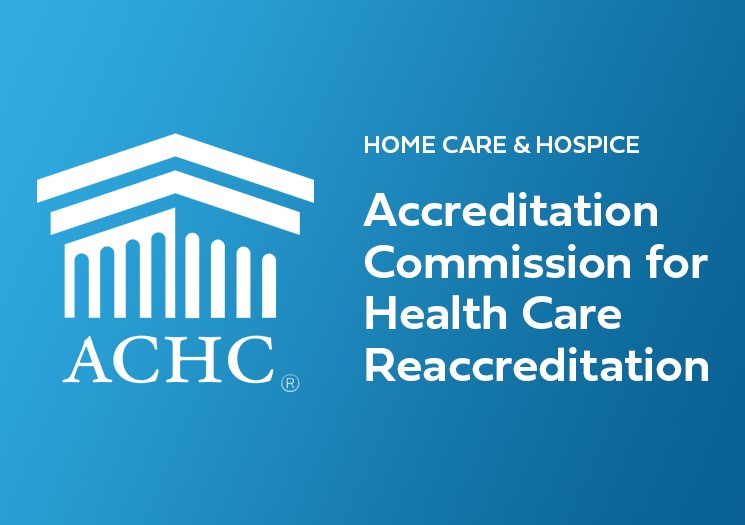- Find a Provider
-
Services
-
Redeemer Health provides compassionate care across every stage of life.
- View all Services
- Health Care
- Cancer Care
- Heart Care
- Hospital at Home
- Maternity Care
- Pediatric Urgent Care
- More Health Care Services
-
- Patients & Visitors
- Locations
- Careers
categories:

By Samuel J. Needles, MD, OB-GYN at Redeemer Health
The role an obstetrician-gynecologist (OB-GYN) plays in a woman's health journey is important from adolescence to adulthood. Even more important is finding the right OB-GYN to make sure you get the care you deserve.
Understanding the Role of an OB-GYN
An OB-GYN is a medical professional who specializes in the field of women's reproductive health. OB-GYNs are trained to provide comprehensive health care services related to both obstetrics (pregnancy, childbirth, and postpartum care) and gynecology (the female reproductive system, including the diagnosis and treatment of disorders).
OB-GYNs are skilled in diagnosing and treating a variety of conditions, from routine check-ups to more complex issues such as infertility, pelvic pain, and sexually transmitted infections (STIs). They provide services that span a woman’s lifetime, such as: Pap smears and HPV (human papillomavirus) testing, breast exams, sexually transmitted disease (STD) screenings, fertility testing and treatment, pregnancy care, and menopause management, to name a few. Many OB-GYNs are also highly trained in a variety of surgical options to manage a variety of women’s health concerns. OB-GYNs use their training and experience to help educate and guide patients, empowering them to make informed decisions based on their individual situation.
Making Sure You Choose the Right OB-GYN
Choosing the right OB-GYN is important for your overall health and well-being. Be sure to find an OB-GYN who makes you feel comfortable, someone you can talk with openly about your health concerns and who provides quality care.
Factors to consider when choosing an OB-GYN include:
- Location: Is the provider located near me? If you are pregnant or planning to become pregnant, it's also important to know where your newborn will be delivered.
- Insurance: Does the provider accept your insurance?
- Communication: Does the provider listen to your questions and concerns?
- Comfort: Do you feel comfortable with the provider and their bedside manner?
- Experience: Does the provider have experience in treating your specific needs?
How Often Should I See My OB-GYN?
Regular gynecological exams and preventative care are critical in maintaining reproductive and overall health. You should also see an OB-GYN if you experience any abnormal symptoms or concerns, such as: irregular periods, painful periods, abnormal discharge, pain during sex, bleeding between periods, or concerns related to fertility or pregnancy.
Building a relationship with your OB-GYN can play a key role in your well-being. Seeing the same provider for routine check-ups and prevention helps them get to know you and your health history. It also helps in providing you with personalized care and catching any potential health concerns before they become more serious.
Most women will have a recommended visit annually with their OB-GYN, with the care tailored to address their specific health needs, life stage, and individual goals.
For adolescents, the American College of Obstetricians and Gynecologists (ACOG) recommends that girls first see an OB-GYN when they're between the ages of 13 and 15. Most girls will not need a pelvic exam during this first visit. Many providers will simply perform a regular health exam and talk with the patient about her development.
Taking the Next Step
Regardless of your life stage, finding the right OB-GYN is important in maintaining your overall health and well-being. Don't be afraid to ask your provider questions or bring up any concerns you may have. A good OB-GYN will listen to your needs and work with you to create a personalized care plan that's right for you.
To find a Redeemer Health OB-GYN near you, call our Physician Referral Service at 800-818-4747 or visit the Redeemer Health website.
If you are expecting a new baby, be sure to visit RedeemerHealth.org/MaternityCare to take a virtual tour of Holy Redeemer Hospital's Labor and Delivery unit, access helpful educational resources and videos, and join our Redeemer Baby Online Community.
About the Author: Dr. Samuel J. Needles is an Obstetrician and Gynecologist (OB-GYN) specializing in pregnancy, childbirth, and women's reproductive health. He received his medical degree from Sidney Kimmel Medical College at Thomas Jefferson University. Dr. Needles currently sees patients at Kramer OB-GYN and Associates, a Redeemer Health practice providing complete obstetrical and gynecological care.
categories:

For the second year in a row, Redeemer Health's Support at Home has received the distinguished 2024 Best of Home Care - Leader in Experience Award from HCP, the leading firm in experience management for home care. This is the highest recognition awarded by HCP and is given to select home care businesses that consistently rank among the very best in ten or more quality metrics.
As a Leader in Experience, Redeemer Health Support at Home has the distinction of being among the 10% of home care providers participating in the nationwide HCP Experience Management Program. Both clients and caregivers were interviewed by HCP and they consistently offered high satisfaction ratings in areas such as caregiver training, compassion of caregivers, communication, scheduling, client/caregiver compatibility, and more.
Visit here to learn more about Redeemer Health Support at Home.
topics in this article
categories:

By David P. Warshal, MD, FACOG, Director of Gynecologic Oncology,
Gynecologic Oncologist, Redeemer Health in partnership with MD Anderson Cancer Center at Cooper
Each year, more than 12,000 women are diagnosed with cervical cancer. Most women don't usually experience symptoms until the disease has advanced and affected surrounding tissues.
While various treatment options exist for cervical cancer, it's better to focus on prevention rather than relying solely on a cure. The good news is, by adopting healthy habits and lifestyle changes, women can significantly reduce their risk of developing cervical cancer.
Below are several steps a woman can take to reduce the risk of cervical cancer:
- Get Regular Pap Tests or an HPV test with or without a Pap. Getting regular Pap and HPV tests is crucial for the early detection of cervical cancer. Pap tests can help detect abnormal cells in the cervix before they turn cancerous. HPV testing detects the virus that is associated with the development of almost all cervical cancers. Women should begin getting Pap tests at age 21 and continue to get them regularly every three years. HPV testing can be added at the discretion of your gynecologist. Women who have a high risk of cervical cancer may need to get more frequent tests. Your gynecologist can share information with you about the latest guidelines.
- Get Vaccinated. One of the easiest and most effective ways to prevent cervical cancer and a variety of additional cancers is by getting vaccinated against the human papillomavirus (HPV). The vaccine is recommended for girls and boys aged 11-12 years, but it can be given up to age 45.
- Practice Safe Sex. Having a sexually transmitted disease (STD) can elevate the chances of developing cervical cancer. Adopting safer sex practices, such as consistent condom use and limiting sexual partners, can greatly decrease your risk of cervical cancer.
- Eat a Balanced Diet. Eating a healthy diet that includes plenty of fruits, vegetables, and whole grains provides essential vitamins, minerals, and antioxidants - all of which supports a strong immune system and can help reduce the risk of cervical cancer. Limiting red and processed meats, unhealthy fats, and sugars can further reduce the risk, as these have been linked to an increased risk of cancers.
- Avoid Smoking. Smoking weakens the immune system, making it easier for HPV to cause cancer. Women who smoke are also less responsive to treatment than non-smokers. Quitting smoking can improve your health in many ways; reducing your risk of cervical cancer is one of them.
- Exercise Regularly. Physical activity can help you maintain a healthy weight, which is important since obesity has been associated with less effective screening and treatment for cervical cancer.
The bottom line is that cervical cancer can be preventable if you get Pap tests regularly, receive the HPV vaccination when recommended, and adopt the above healthy habits and lifestyle changes.
Don't wait. Start taking control of your cervical health today.
To find a Redeemer Health OB-GYN, call 800-818-4747 or visit the Redeemer Health website.
About the Author: Dr. David Warshal is the Director of Gynecologic Oncology and Gynecologic Oncologist at Redeemer Health in partnership with MD Anderson Cancer Center at Cooper. He also serves as Professor of Obstetrics and Gynecology at Cooper Medical School or Rowan University. Dr. Warshal received his medical degree from Pennsylvania State University College of Medicine. He has more than 37 years of experience in gynecological oncology and obstetrics-gynecology. He is board certified by the American Board of Obstetrics & Gynecology (Obstetrics & Gynecology - General) and the American Board of Obstetrics & Gynecology (Gynecologic Oncology).
categories:

By Paul Sandhu, MD, FHRS, Interventional Cardiologist at Redeemer Health
The recent sudden death of a Philadelphia undergraduate student placed a spotlight on caffeine consumption and its potential role in provoking arrhythmias - irregular heartbeats with the potential for serious health effects.
The 21-year-old college junior, who had an arrhythmia problem called Long QT Syndrome Type I, died from cardiac arrest hours after drinking lemonade infused with caffeine at a local quick-service restaurant. She had previously avoided caffeinated beverages at the recommendation of her doctors, and seemingly was unaware that the beverage consumed contained high amounts of caffeine.
Caffeine's Impact on the Heart's Electrical System
Drinks with high caffeine amounts can cause immediate heart-related effects, including an increase in blood pressure and heart rate. Caffeine changes the way that the heart’s electrical system, or its “wiring,” works. Caffeine has therefore long been believed to play a role in arrhythmia disturbances.
Mild to moderate caffeine consumption is typically safe; however, it is worth noting that this may not be true for all patients, especially those with ventricular arrhythmias or those who may be at risk for them. Some acquired or inherited arrhythmia syndromes (including the aforementioned Long QT Syndrome, Catecholaminergic Polymorphic VT, Arrhythmogenic Right Ventricular Cardiomyopathy, and Brugada Syndrome), which leave patients at risk for sudden cardiac death, are more likely to be active in a high adrenalin-related situation, which caffeine can create.
Moderate to high levels of caffeine consumption, which is increasingly found in many people with the more widespread use of energy drinks, is known to result in a sudden increase in the adrenalin-related (and resulting “fight or flight”) condition of the person affected. Further research is needed to study the effect of caffeine in these select groups of people.
When to Consult with Your Doctor
If you drink large quantities of caffeine, you should consult with your primary care clinician or cardiologist, especially if you have a family history of unexplained sudden death or other cardiac-related conditions.
In the meantime, be sure to read labels if you know you are at risk. In the case of the Philadelphia college student, caffeine content in her choice of beverage wasn't clearly labeled enough, so if you are at risk, ask for information.
Click here to learn more about cardiology care at Redeemer Health. To find a doctor who is right for you, visit our provider directory or call the Redeemer Health Physician Referral Service at 800-818-4747.
About the Author: Dr. Paul Sandhu is a member of the Redeemer Health medical staff, specializing in cardiac electrophysiology for the management of arrhythmias. He treats patients with chronic coronary artery disease, valvular heart diseases and congestive heart failure. He also has extensive experience with pacemaker, defibrillator (ICD) and biventricular devices.
categories:

MEADOWBROOK, Pa. - January 2024 The National Accreditation Program for Breast Centers (NAPBC), a quality program administered by the American College of Surgeons (ACS) has granted accredited status to the breast health program at Redeemer Health in partnership with MD Anderson Cancer Center at Cooper. This means the program meets the NAPBC standards for leadership, clinical services, research, community outreach, professional education, and quality improvement for patients.
Compliance proves the program is committed to excellence in delivery of comprehensive, patient-centered, multidisciplinary care for patients with breast disease. An NAPBC-accredited center also gives patients access to information on clinical trials and new treatment options, genetic counseling, and patient-centered services including psychosocial support, rehabilitation services, and survivorship care.
"As an accredited program, we are committed to serving our patients and community and we remain focused on access to screenings, early detection, treatment, and quality care," said Dr. William Scarlett, Executive Director of the Cancer Center at Redeemer Health in partnership with MD Anderson at Cooper. "Breast care patients who choose our program receive care from a multidisciplinary team that is committed to working together and providing the best care possible throughout their entire course of treatment."
Breast centers seeking NAPBC accreditation undergo a site visit every three years. Accreditation is granted only to those programs that are committed to providing multidisciplinary, integrated, comprehensive breast cancer services.
topics in this article
categories:

During pregnancy, it's important to adopt helpful strategies to ensure a healthy and successful journey for both you and your baby.
Below are several helpful tips shared by Dr. Natalie Dogal Gardner, Fellow of the American Board of Obstetrics and Gynecology and OB-GYN, Redeemer Health:
- Don't smoke or drink alcohol: Avoid smoking and consuming alcohol to minimize the risk of complications and harm to your baby.
- Eat a nutritious diet: Sticking to a healthy diet will decrease the risk of pregnancy complications, help you look and feel better during your pregnancy, and make it easier and faster to get back to your pre-pregnancy weight. If your current diet comes up short, now's the time to set good eating habits such as those below:
- Eat plenty of fruits and vegetables. Vegetables are high in vitamin A, vitamin C, iron and magnesium, while fruits deliver vitamin A, vitamin C, potassium and fiber, all of which are essential to a baby's healthy development.
- Don't skip meals. Skipping meals can lead to inadequate intake of key nutrients that are crucial for the health and development of both you and your baby. Skipping meals can also lead to low energy levels and fatigue, and may disrupt a healthy weight gain pattern during pregnancy.
- Restrict your sugar intake. Consuming excessive sugar during pregnancy can contribute to increased gestational weight gain, which may lead to complications such as gestational diabetes and high blood pressure. High sugar consumption can also lead to dental problems for you and your baby, and in some cases, excessive sugar intake has been linked to negative effects on the baby's brain function.
- Curb the caffeine. While there is conflicting research on the effects of caffeine during pregnancy, it's best to err on the side of caution and limit caffeine intake as much as possible during pregnancy.
- Practice food safety. Practicing food safety during pregnancy is critical protecting you and your developing baby from potential foodborne illnesses.
- Stay physically active: Engage in regular exercise as advised by your healthcare provider. Moderate-intensity activities like walking, swimming, and prenatal yoga can help maintain overall fitness and manage weight gain during pregnancy.
- Take prenatal vitamins: Be sure to take your daily prenatal vitamins containing key nutrients such as folic acid, iron, and calcium to support the healthy growth and development of your baby.
- Get regular prenatal care: Schedule regular visits with your healthcare practitioner to monitor the progress of your pregnancy, receive necessary screenings, and address any concerns or complications that may arise.
Whether it's your first pregnancy or you're expanding your family, Redeemer Health's OB providers are available to support you every step of the journey.
Dr. Gardner sees patients at the Redeemer Health Medical Office Building, located at 1650 Huntingdon Pike, #118, Meadowbrook, PA 19046, as well as other locations. To schedule an appointment, call 215-914-2600.
You can also visit our provider directory or call the Redeemer Health Physician Referral Service at 800-818-4747 for assistance.
Watch Our Webinar - Baby on Board: Strategies for a Healthy Pregnancy Journey
In this webinar, OB-GYN Natalie Dogal Gardner, MD, Redeemer Health, offers tips for keeping you and your baby healthy throughout your pregnancy. Watch here.
Interested in Taking a Virtual Tour?
Visit RedeemerHealth.org/MaternityCare to take a virtual tour of Holy Redeemer Hospital's Labor and Delivery Unit.
categories:

MEADOWBROOK, Pa. - Fall 2023 - Holy Redeemer Hospital received an "A" grade for hospital safety for the ninth time in a row from the Leapfrog Group. The hospital has scored an "A" every semiannual cycle since fall 2019. Among many other categories, the fall 2023 grade reveals high achievements in the following areas:
- Infection control
- Staff working together to prevent errors
- Safe medication administration
- Handwashing
- Communication with doctors and nurses
- Responsiveness of hospital staff
According to the Leapfrog Group, Holy Redeemer Hospital is among fewer than 30% of hospitals nationwide to achieve an "A" grade this fall. Among 127 Pennsylvania hospitals, there were only 56 hospitals to achieve an "A" grade. Maintaining high scores over a long period of time makes Holy Redeemer Hospital a “Straight A” performer, and reflects a culture of safety that reveals the ongoing commitment made by every teammate in our hospital.
The Leapfrog Group, an independent national organization, assigns letter grades to hospitals across the country based on more than 30 performance measures reflecting errors, accidents, injuries and infections, as well as systems in place to prevent harm. According to the Leapfrog Group, its hospital safety grade is the only ratings program based exclusively on hospital prevention of medical errors and harm to patients. The grading system is peer-reviewed, fully transparent and free to the public. Receiving an “A” grade is a sign that hospitals are continuously evaluating their performance, so that they can best protect patients, according to the Leapfrog Group.
###
About Redeemer Health
A Catholic health care provider, Redeemer Health (RH) offers a wide range of health care and health-related services, including a 239-bed acute care hospital with a physician network and outpatient services, a 31-bed transitional care unit, home health and hospice services, three skilled nursing facilities, personal care, a retirement community, low-income housing, an independent living community, a transitional housing program for homeless families, and multiple homes for intellectually and developmentally disabled adults. RH also owns and operates Community Care Collaborative, an accountable care organization. Corporate offices are located in Huntingdon Valley, Pa. The system serves southeastern Pennsylvania and New Jersey. Visit www.redeemerhealth.org for more information.
categories:

Lung cancer is the most common cause of cancer-related deaths and second most common cancer in both men and women in the United States. According to the National Cancer Institute, more than 230,000 people in the U.S. are diagnosed with the disease each year. While most cases are linked to tobacco smoking, a growing number of diagnoses are among non-smokers, especially among women.
Risk Factors
The main risk factors for lung cancer may include:
- Smoking tobacco (currently or in the past)
- Exposure to second-hand smoke
- Exposure to radon, asbestos, arsenic, chromium, or other chemicals
- Living in an area with air pollution
- A family history of lung cancer
- Infection with the human immunodeficiency virus (HIV)
- Radiation exposure, including radiation therapy to the breast or chest, and radon exposure. This is a minor risk factor and the benefits of radiation therapy as a cancer treatment far outweigh the risks.
Symptoms
Lung cancer symptoms can vary from person to person. Many people with lung cancer may have no symptoms, but when symptoms present they can include:
- Cough that does not go away and gets worse over time
- Chest pain that is constant and often made worse by deep breathing, coughing or laughing
- Arm or shoulder pain
- Coughing up blood or rust-colored phlegm
- Shortness of breath, wheezing or hoarseness
- Infections like pneumonia or bronchitis that do not go away or come back often
- Swelling of the neck and face
- Loss of appetite and/or weight loss
- Feeling weak or tired
Note: The above symptoms are not specific to lung cancer and can occur with other conditions as well. If you are experiencing any of these symptoms, you should consult your family physician to discuss screening and diagnosis recommendations.
Screening and Diagnosis
"Early detection is crucial in treatment of lung cancer," said Dr. Alan Reinach, Lead Physician with Redeemer Pulmonary Associates.
The U.S. Preventive Services Task Force (USPSTF) recommends annual screening for lung cancer with low-dose computed tomography (LDCT) in adults aged 50 to 80 years, who have a 20 pack-year smoking history and currently smoke or have quit within the past 15 years.
If you meet the above criteria and are interested in screening, you should talk to your doctor about your options. You should also check with your individual insurance carrier to determine coverage.
A low-dose CT scan is a non-invasive tool that captures multiple cross-sectional images of your lungs, creating a comprehensive and detailed picture. When a screening indicates that further testing is needed, Redeemer Health provides state-of-the-art procedures to help diagnose lung cancer, such as endobronchial ultrasound bronchoscopy (EBUS), navigational bronchoscopy, and positron emission tomography (PET) scanning.
To learn more about the lung cancer screening options available at Redeemer Health, visit redeemerhealth.org/lung-cancer-screening or call 215-938-LUNG (5864).
Experienced Care for Lung Cancer: Close to Home
The Redeemer Health in partnership with MD Anderson Cancer Center at Cooper lung cancer program maintains nationally recognized accreditation through the Care Continuum Center of Excellence by the GO2 Foundation for Lung Cancer and is recognized as a Screening Center of Excellence by the Lung Cancer Alliance.
Visit redeemerhealth.org/services/health-care/cancer-care/lung-cancer to learn more.
categories:

Redeemer Health Home Care and Hospice earned reaccreditation from the Accreditation Commission for Health Care (ACHC). To achieve this, an organization undergoes a review process to demonstrate its capabilities and commitment to quality and safety standards.
For health care consumers, seeing that a home care and hospice provider has ACHC accreditation can provide peace of mind. It indicates that the provider has gone through a careful review process and has met high standards for quality and safety. It also signifies that the provider is committed to constantly improving its services.
"ACHC accreditation is a badge of excellence for home care providers, proving they have been thoroughly vetted and are dedicated to providing the best possible care," said Alan Rosenberg, Executive Vice President of Redeemer Health Home Care and Hospice Services.
Click here for more information about the many quality achievements and accreditations earned by Redeemer Health.
categories:

Redeemer Health's Ambulatory Surgery Center (ASC), located at 821 Huntingdon Pike, has been recognized in Newsweek's 2024 list of "America's Best Ambulatory Surgery Centers." Newsweek reserves this top ranking for facilities that demonstrate excellence based on careful analysis of facility performance data and recommendations of medical authorities.
"For an ambulatory surgery center, getting this award is a big achievement. It signals that the ASC is doing a great job in delivering care to its patients and that it stands among the best in its state and the entire nation," said James Armstrong, Administrator for the Redeemer Health Ambulatory Surgery Center.
Click here for more information about the many quality achievements and accreditations earned by Redeemer Health.
